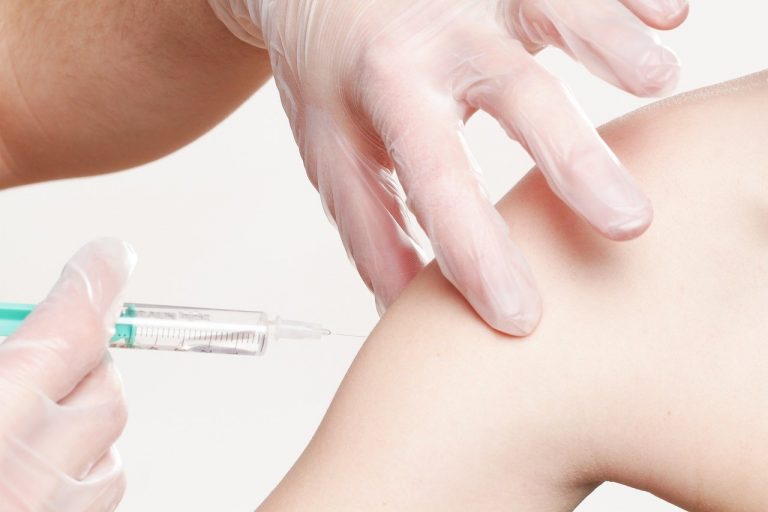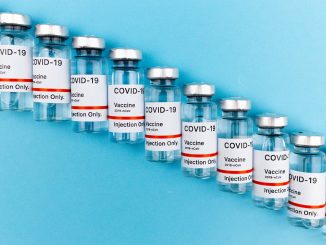The UK will start mass immunisation next week and is set to receive the first 10 million doses by the end of the year. Here's a first priority list.

Topics covered
The UK has officially approved Pfizer vaccine and will start mass immunisation next week. Matt Hancock has said to be very ‘confident’ the country will be ‘back to normal’ by summer 2021, but -being the first western country to start mass immunisation- Britons have many questions that deserve an instant answer.
Here are some of the most common.
The most common questions about vaccine answered
After the Medicines and Healthcare products Regulatory Agency (MHRA) has approved the Pfizer/BioNTech covid vaccine on Wednesday morning, the UK has officially confirmed the rollout of the vaccine will begin next week, making it the first western nation to start mass immunisation.
The Pfizer vaccine had revealed to be 95% effective in the latest trials and the UK bought a total of 40 million doses in order to begin vaccination of 20 million people, as the vaccine requires the injection of two doses per person. This is a historic moment for the UK, as ‘early next week’ the jabs will start rolling out and people will begin receiving it. Then how does it work? How do we know it’s safe?
What is it?
The Covid vaccine is a messenger RNA (mRNA) vaccine, which means it uses only the virus’s genetic code and no actual virus is going to be injected. As no virus is needed to create the vaccine, it can be produced much more rapidly. It was first developed by the pharmaceutical giant Pfizer in collaboration with German biotech company BioNTech and according to the latest clinical trials, it is 95% effective, also to older people. It was tested in six different countries and registered no safety concerns.
The Priority list: who goes first?
Hospitals will have to be prepared to receive the jabs early next week. A priority list will be delivered later today by the Joint Committee on Vaccination and Immunisation (JCVI), the independent expert panel that has been advising ministers on vaccinations, but will probably have to be revised. Pfizer vaccine will be given to people at the highest risk of death from the virus and the priority list will be done according to existing data. This is the priority list previously published by the JCVI:
– Older adults in a care home and care home workers
– All those aged 80 and over and health and social care workers, though they may move up the list
– Anyone 75 and over
– People aged 70 and over
– All those aged 65 and over
– High-risk adults under 65
– Moderate-risk adults under 65
– All those aged 60 and over
– All those 55 and over
– All those aged 50 and over
– The rest of the population, with priority yet to be determined.
How do we know it is safe?
Pfizer vaccine has undergone scrupulous clinical trials and had to be approved by experienced regulators. Also, mRNA vaccines do not have any element of the virus.
The vaccines have been tested in laboratories and on animals before also being analysed and tested on humans. The clinical tests have started early 2020 and Pfizer will continue to collect safety outcomes data for two years.
How is UK going to manage a mass immunisation?
The UK has bought 40 million doses and is set to receive 10 million by the end of 2020. Two doses of Pfizer vaccine will need to be injected to each person, which means so far the UK does not have enough doses to immunise everyone, but -not to forget- other vaccines are about to receive approbation in the coming weeks. The United Kingdom, in fact, has also bought 100 million doses of the AstraZeneca/Oxford vaccine which is almost enough for all UK.
NHS staff are ready to start the immunisation to the people most at risk as well as to healthcare workers. NHS leaders have already confirmed “roving teams” will be ready for the injections.
Covid vaccine clinics will run from 8 am to 8 pm seven days a week and GPs will have all the information on how to prepare for a mass rollout. NHS and GPs will be prepared to give people two vaccine doses which will have to be delivered between 21 and 28 days apart. Practices will be provided with the appropriate medical kit.
The British Medical Association (BMA) has confirmed GP practices will have to work together and said: “Working together, practices will need to be prepared to offer vaccinations seven days a week so that the vaccine is delivered within its short shelf-life and so patients receive it as soon as possible… Practices will need to work together to decide which one practice (or another appropriate site) is used for the vaccination site, remembering the need for provision to be potentially available 8 am-8 pm, seven days a week.”
Is ‘normality’ in sight?
Health Secretary Matt Hancock has said to be very confident that the UK will be back to normal by Easter/ summer 2021, when all restrictions will likely be taken off.
Imperial College London co-director, David Nabarro said life will go back to a “new normal”, which means we could expect “many months of still dealing with the virus as a constant threat that we’ve got to make certain that we continue to do all that is necessary to solve the virus causing major problems.”
Oxford University professor John Bell has said Britons will be back to normal life in the coming months.
READ MORE:






